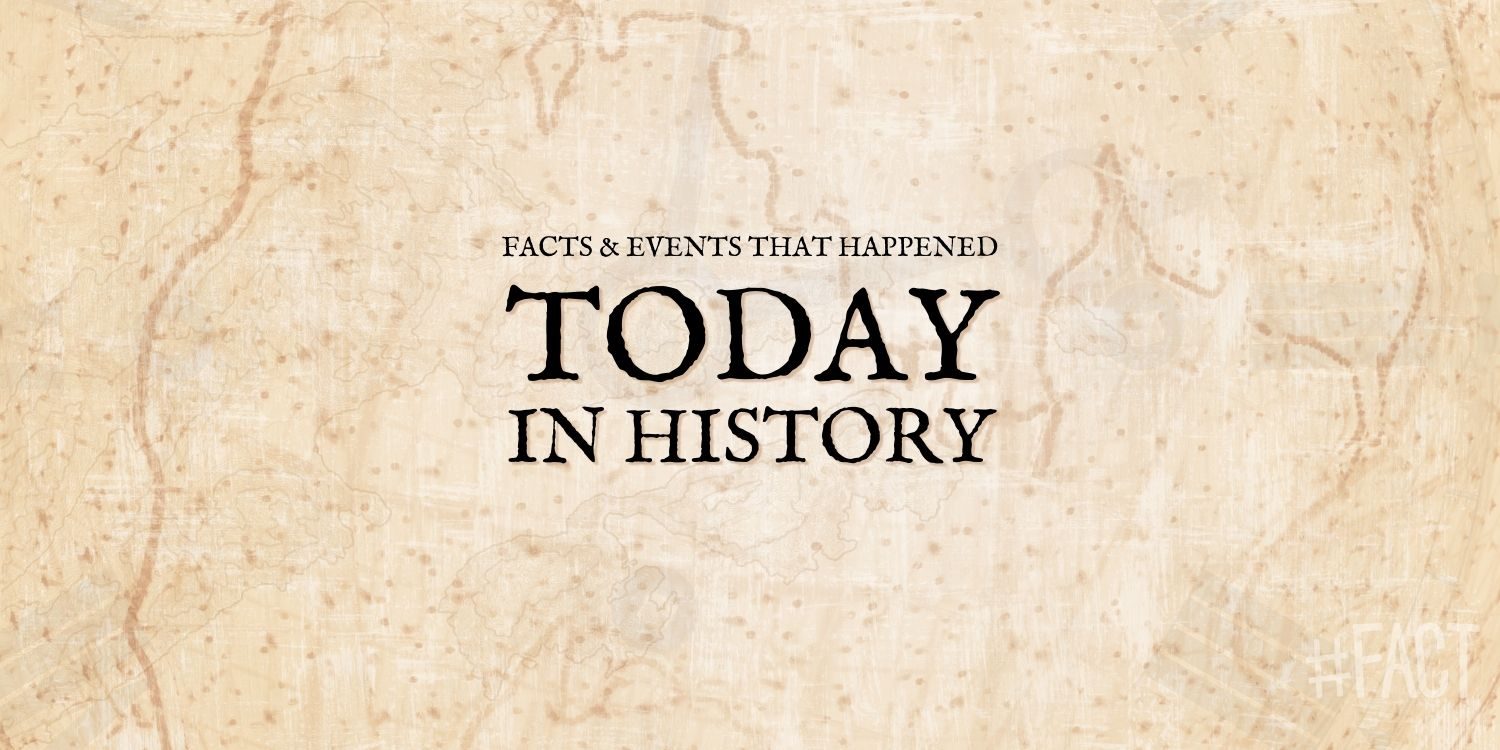
Today in History - August 25
Important Events on August 25
1609: Galileo Galilei demonstrated his first telescope to Venetian lawmakers. This event marked a significant advancement in the field of astronomy, leading to many of Galileo's later discoveries.
1825: Uruguay declared its independence from Brazil, which later led to the formation of the modern nation of Uruguay.
1944: Paris was liberated by Allied forces during World War II after four years of Nazi occupation. The liberation of Paris marked a significant turning point in the war.
1989: The Voyager 2 spacecraft made its closest approach to Neptune, providing the first close-up images of the planet and its moons.
2012: The first manned spacecraft, Voyager 1, left the solar system, marking humanity's first journey into interstellar space.
Famous Birthdays on August 25
1918: Leonard Bernstein, an American composer, conductor, and pianist, best known for his work on the musical "West Side Story."
1930: Sir Sean Connery, a Scottish actor, best known for his portrayal of James Bond in seven films.
1933: Regis Philbin, an American television presenter, talk show host, and actor, famous for hosting "Who Wants to Be a Millionaire?"
Death Anniversaries on August 25
1776: David Hume, a Scottish Enlightenment philosopher, historian, economist, and essayist known for his influential works on empiricism and skepticism.
1984: Truman Capote, an American novelist, screenwriter, and playwright, known for his books "In Cold Blood" and "Breakfast at Tiffany's."
2012: Neil Armstrong, an American astronaut and the first person to walk on the Moon, known for his famous words, "That's one small step for man, one giant leap for mankind."
आज का इतिहास - 25 अगस्त
25 अगस्त की महत्त्वपूर्ण घटनाएँ
1609: गैलीलियो गैलिली ने वेनिस के विधायकों को अपना पहला दूरबीन दिखाया। यह घटना खगोल विज्ञान के क्षेत्र में एक महत्वपूर्ण प्रगति थी, जिससे गैलीलियो की कई खोजों का मार्ग प्रशस्त हुआ।
1825: उरुग्वे ने ब्राजील से अपनी स्वतंत्रता की घोषणा की, जो बाद में आधुनिक उरुग्वे राष्ट्र के गठन का कारण बना।
1944: द्वितीय विश्व युद्ध के दौरान मित्र देशों की सेना ने पेरिस को चार साल के नाजी कब्जे के बाद मुक्त कर दिया। पेरिस की मुक्ति ने युद्ध में एक महत्वपूर्ण मोड़ साबित किया।
1989: वायेजर 2 अंतरिक्ष यान ने नेपच्यून के सबसे करीब पहुंचकर ग्रह और उसके चंद्रमाओं की पहली नजदीकी तस्वीरें प्रदान कीं।
2012: पहला मानवयुक्त अंतरिक्ष यान, वायेजर 1, सौरमंडल से बाहर चला गया, जिससे मानवता की अंतरतारकीय अंतरिक्ष में पहली यात्रा हुई।
25 अगस्त को जन्मे व्यक्ति
1918: लियोनार्ड बर्नस्टीन, एक अमेरिकी संगीतकार, कंडक्टर, और पियानोवादक, जिन्हें संगीत "वेस्ट साइड स्टोरी" के लिए जाना जाता है।
1930: सर सीन कॉनरी, एक स्कॉटिश अभिनेता, जो सात फिल्मों में जेम्स बॉन्ड की भूमिका के लिए सबसे प्रसिद्ध हैं।
1933: रेजिस फिलबिन, एक अमेरिकी टेलीविजन प्रस्तुतकर्ता, टॉक शो होस्ट, और अभिनेता, जो "हू वांट्स टू बी अ मिलियनेयर?" के होस्ट के रूप में प्रसिद्ध हैं।
25 अगस्त को हुए निधन
1776: डेविड ह्यूम, एक स्कॉटिश प्रबुद्धता के दार्शनिक, इतिहासकार, अर्थशास्त्री, और निबंधकार, जो अपने अनुभववाद और संशयवाद पर प्रभावशाली कार्यों के लिए जाने जाते हैं।
1984: ट्रूमैन कैपोट, एक अमेरिकी उपन्यासकार, पटकथा लेखक, और नाटककार, जिन्हें उनकी किताबें "इन कोल्ड ब्लड" और "ब्रेकफास्ट एट टिफ़नीज" के लिए जाना जाता है।
2012: नील आर्मस्ट्रांग, एक अमेरिकी अंतरिक्ष यात्री और चंद्रमा पर चलने वाले पहले व्यक्ति, जिन्होंने प्रसिद्ध शब्द कहे थे, "यह मनुष्य के लिए एक छोटा कदम है, मानवता के लिए एक विशाल छलांग।"
Comments (0)
Categories
Recent posts


AIIMS Paramedical 2024: Application ...
13 Jun 2024
10 October 2023 Today in History ...
10 Oct 2023
JEE Advanced Question Paper 2024 - JEE ...
10 Sep 2023



